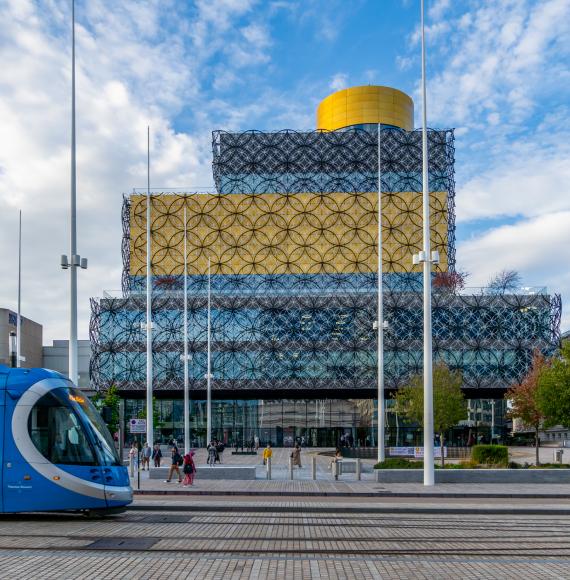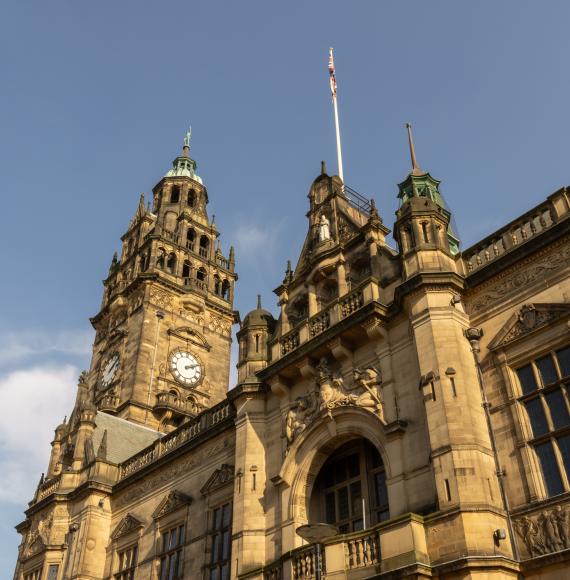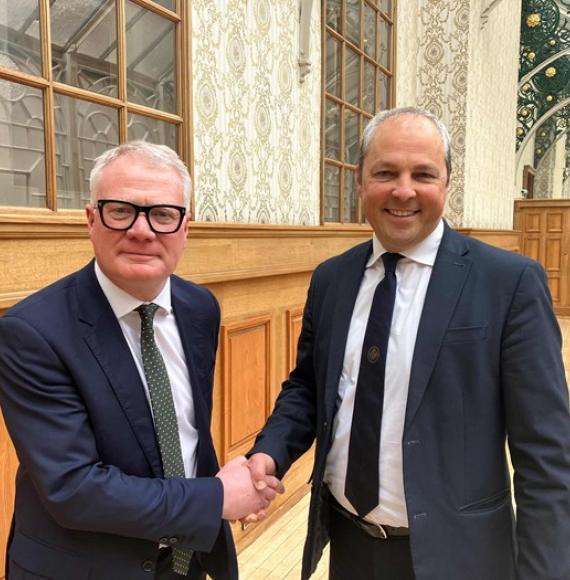As 2023 became 2024, and the country turned its eyes towards the Spring, we were faced with unpredictable and often extreme weather. With the impacts of climate change already starting to be felt, it is imperative that the public sector does all it can to reduce carbon emissions and limit the damage done to the environment.
Thankfully, there are plans in place, with government schemes supporting the important work that organisations across the sector are doing to reduce their emissions. The work isn’t done though, and there is lots more that needs to be achieved. In order to learn more about how organisations are reducing their carbon emissions, and how they may overcome the challenges that lay ahead, Public Sector Executive brought leaders and decision-makers together as part of the Public Sector Decarbonisation 2024 Online Conference.
Energy Efficiency
The first panel discussion of the day centred around one of the most important things to consider when embarking upon a project for decarbonisation: energy efficiency. As part of this, the Public Sector Decarbonisation Scheme (PSDS) is being used by local authorities to reduce the emissions that are being produced by public buildings, yielding mainly positive results.
Almost 70% of local authorities have improved on their energy efficiency thanks to the scheme, however some challenges do remain as authorities try to achieve the scheme’s target of a 75% reduction by 2037. With this in mind Andy Hunt (Green Energy and Sustainability Manager, Oldham Council), Stephanie Parker (Senior Advisor Decarbonisation, Energy Systems Catapult), Vicky Kingston (Senior Strategy Director, Local Partnerships), and Jo Pearce (Net Zero Project Manager, Exeter City Council) came together to discuss how authorities can overcome their challenges and achieve the target outlined by the PSDS.
Transport
Transport is one of the biggest contributors to national carbon emissions, so there is a lot that authorities can do to support climate and decarbonisation projects. Electrification is one way that transport can be decarbonised, with this being the topic of discussion for the second leaders debate of the conference.
Katarina Winbeck (Strategic Lead, Transport and Environment, London Councils) joined Shamala Evans-Gadgil (EV Infrastructure Programme Manager, Coventry City Council), Matt Davey (Director of Highways, Transport and Planning, West Sussex County Council), and Wayne Bexton (Director of Green Growth, Investment and Assets, Nottinghamshire County Council) to discuss the crucial role that the public sector plays in all facets of electrification and the decarbonisation of transport.
Waste
The third panel of the day explored the ways that the public sector decarbonises waste. Hospitals currently produce around 156,000 tonnes of clinical waste annually, which shows just how much waste can be produced by the sector.
With the diverse nature of public sector waste, and the absence of a universal solution, Cllr Dee Laws (Portfolio Holder for Planning, Fenland District Council), Cllr Peter Schwier (Cabinet Member for Environment, Waste Reduction and Recycling, Essex County Council), and Louise Cowan (Director – Climate, Local Partnerships) came together to share their expert insight.
Technology
The UK Government has committed to reaching net zero carbon emissions by 2050 and, thanks to the £1 billion Net Zero Innovation Portfolio, technology is one of the major contributing factors to achieving this.
Professor Andrew Barron (Ser Cymru Chair, Low Carbon Energy and Environment), Cllr George Potter (Portfolio Holder for Climate Change and Environmental Services, Guildford Borough Council), Andy Hunt (Green Energy and Sustainability Manager, Oldham Council) and Luke Ravenscroft (Director of Climate Emergency, London Borough of Waltham Forest) came together to discuss the immediate actions that the public sector can take. This leaders debate also looking into how digitalisation can increase efficiency and contribute to nationwide environmental targets.
Housing
There are 4.1 million social and affordable homes across the UK. As the public sector begins to roll out decarbonisation across transport, waste and technology, these homes must also be looked at. Thankfully, the Social Housing Decarbonisation Fund is there to offer support to councils embarking on the mission of decarbonising their housing stock.
To discuss the challenges faced when trying to reduce the carbon emissions produced by affordable housing, as well as some examples of how councils are doing so successfully, Juliet Nicholas (Energy and Sustainability Manager, Oxford City Council), Cllr Keith Melton (Portfolio Holder for Climate Change and Net Zero, Newark and Sherwood District Council), Michael O’Doherty (Director-Place, Local Partnerships) took part in the final panel discussion of the day.
If you missed the Online Conference, and want to gain crucial, expert insight into the ways that the public sector can come together to reduce carbon emissions, the challenges that might slow progress down, and how to overcome them, watch On-Demand here.



















